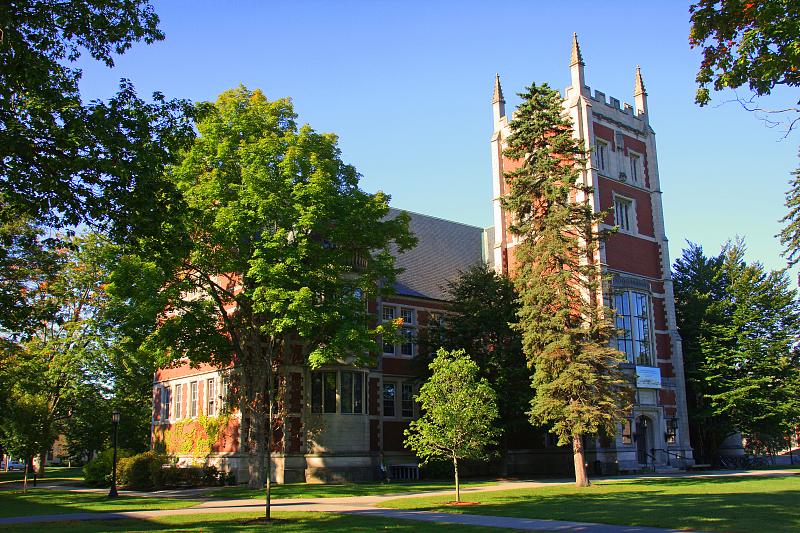Don’t go to Bowdoin College. Don’t give a huge check to Stanford. Don’t give Wilt Chamberlain a hard time for shooting free throws underhanded. And don’t underestimate how much inequality rots our society from all sorts of different angles.
You’ll take away these insights and plenty more like them from Malcolm Gladwell’s fascinating new Revisionist History podcast. His new series, currently ranked number one on iTunes, rummages the past for events and ideas that we as a society have badly misread and really need to rethink.
Gladwell asks, for instance, whether the American Dream is still alive, and that question leads to a novel review of America’s deeply unequal college scene.
In one episode, titled Food Wars, Gladwell compares both the proportion of low-income students attending elite universities and the schools’ dining halls. The premise is that spending significant sums on food takes away from spending on scholarships for needy students. Two schools are highlighted on either end of the “food vs scholarships” spectrum: Bowdoin College in Maine and Vassar College in New York.
Bowdoin has the best dining hall in the country with fresh local organic meals that could just as easily be found at a Michelin rated restaurant. And that is the problem with American higher education today, according to Gladwell.
Don’t go to Bowdoin, he advises, don’t let your friends or children go to Bowdoin. The money wasted on fancy food that doesn’t go to scholarships for needy kids is what’s driving the gap in education. (As you can imagine, Bowdoin took issue with this.)
Vassar, on the other hand, has a mediocre dining hall, but has double the low-income students Bowdoin has. Overly simplistic? Yes. But it’s not really about food, it’s about priorities and Gladwell wants to see those priorities shift.
Mostly left out of the conversation is the role of public colleges and the steady disinvestment in higher education by state legislatures. All but three states spend less on higher education today than they did ten years ago. This speaks to Mr. Gladwell’s bias, whose focus is generally on the elite and the gifted, not on the average poor student with average or even below average intellect.
How do we educate those less gifted and ensure that they too can rise above their social class? How do we treat education as public good, one deserving of public investment? This might be the one major blind spot throughout the series, but it’s a small critique of an otherwise brilliant analysis.
In the next episode, “My Little Hundred Million,” Gladwell touches on this topic with a look at Rowan University in New Jersey. Rowan is a rather unremarkable school, a small public university with mostly local, low-income students. But about 20 years ago, Rowan got a huge boost—a hundred million dollar donation from philanthropist Hank Rowan (for whom the school was subsequently re-named). At the time, this size gift was unheard of and it had a huge impact on the school and the students who would later attend. Gladwell praises Rowan for selecting a school like Rowan to give his money to, a school that could put it to good use.
Unlike, say Stanford.
Stanford, like many of the Ivy League schools and similar institutions, has a massive endowment. At over $20 billion, it’s bigger than the gross domestic product of most island nations. Yet, it was the recent recipient of a $400 million gift earlier this year from Nike founder Phil Knight. And there too is the problem in higher ed, according to Gladwell.
Almost all of the big donations going to higher education go to wealthy universities that already have plenty of money. While Stanford catches the ire in this episode, it could just as easily have been Harvard. Last year, Gladwell jokingly tweeted in response to headlines that billionaire John Paulson was giving the school $400 million, “If billionaires don’t step up, Harvard will soon be down to its last $30 billion.”
The message is clear: if you’ve got big money to give and want to fix education, don’t give it to schools that already have a ton of money.
Like his best-selling books, Gladwell’s podcast is engaging and moves seamlessly back and forth between nuanced academic studies and interesting character profiles. His critiques are a welcome shake-up to beliefs about education and the American Dream.
